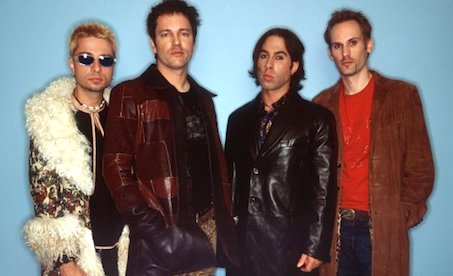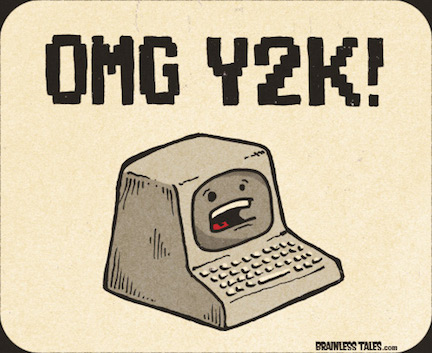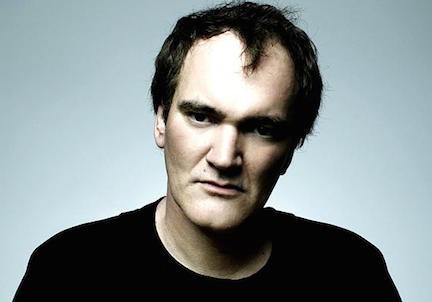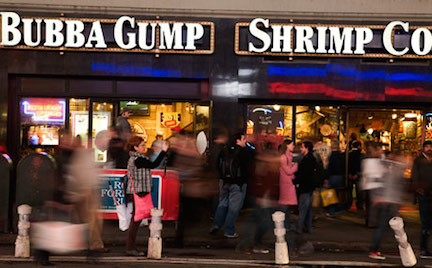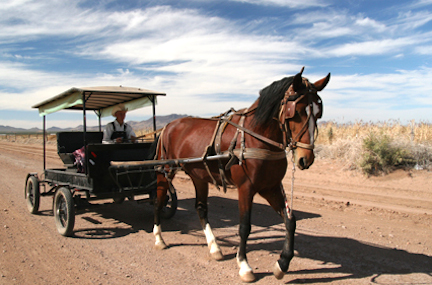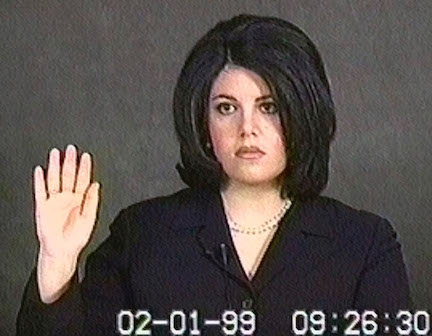Point/Counterpoint is a beloved feature that first appeared in the fall ’72 Telex edition of the Weeklings. PC/P is the product of an intellectual tradition hearkening back to storied Oxford debate squads and the golden age of radio, in which two authors match wits over random subjects while being forced to choose a side and defend it on the fly. Readers are advised to stand back, as the heat can get intense. This week’s All 90?s arm wrestle involves essayist, raconteur, and former Governor of Virginia, Mr. Sean Murphy.
Ladies and gentlemen, we are now on the clock.
Michael Jordan –
Point (Murphy): Here is the uncomplicated part: Jordan is the dominant and peerless athlete of the ‘90s. Here is the complicated part: He is a prick. Big deal, right? Well, not so fast. Certainly, when it comes to athletes, actors, authors and the rich and famous in general, we don’t—and often shouldn’t—expect much in terms of humanity. They are too busy perfecting their craft, and in the instance of rich and famous, being an asshole is their life’s work. And for the creative sorts who have left us with profoundly moving, redemptive art, we acknowledge that messy interpersonal relations or despicable traits all pale in comparison to what they were put on earth to do. But just as Jordan is a once-in-a-generation talent, so too was his opportunity to make a real once-in-a-generation type difference. Indeed, one could argue that today, with our five-second attention spans and every idiot (famous or not) working ceaselessly on building their unique “brand”, it’s difficult to rise above the din. It is, therefore, easier to imagine the impact Jordan might have had, in an analog era, to make a meaningful and lasting difference, had he cared to do so. Famously, he didn’t. “Republicans buy sneakers too,” he quipped sardonically, with a lack of shame and soul that would make Ayn Rand wet. Could Jordan single-handedly have improved sweatshop conditions overseas and reigned in the worst aspects of the previous decade’s consumerism apocalypse? Actually, yes. He might have done more than merely be immortal on the hard wood; he could have changed our world, for the better. How many people in any generation actually have this ability?
Counter-Point (Beaudoin): I don’t think any public figure, celebrity or athlete or otherwise, has an obligation to make a difference. Whatever a “difference” might actually mean. Jordan was basically conservative, in the sense that he was relentless, ruthless, and did whatever it took to make as much money as possible. I see that as a very political act. He rejected the notion that his opinion on Bosnia or race relations was of greater value than not upsetting Hanes executives. He succinctly expressed his worldview by giving everyone the finger while insulating himself behind a wall of Nike checks. And also by being the Greatest Player Ever. Sorry, but if Mike had flown to Malaysia to lock arms with workers in front of a sweatshop gate, he wouldn’t have been the guy who stuck a dagger in Craig Ehlo’s heart, or marginalized Patrick Ewing, or pushed Bryon Russell out of the way like he didn’t exist before sinking the jumper that doomed Karl Malone. I fundamentally disagree with the notion that artists should be judged by their personal lives as opposed to their output. It’s a dangerous temptation when the artist is still alive, because it’s almost impossible for their behavior not to color perceptions of their work. I’m not going to pretend I can watch Curse of the Jade Scorpion without wondering about Woody’s predilections, fairly or otherwise. But I would argue, at least theoretically, that we all should be able to. It’s a good movie or it isn’t. (It’s not). But if you went back through history, almost every great artist (and many not great ones) were complete assholes. Check out the life of Caravaggio. But you don’t see too many people complaining about “David With the Head of Goliath” hanging at the Met because they’re offended by him as a person. To see the world in a truly original fashion and then be able to interpret that view with unusual skill and nuance often requires a level of narcissism that results in aberrant, transgressive, and/or manic behavior. Michael Jordan is exactly the complicated amalgam of thoughts and behaviors and beliefs that allowed him to play like him. If he were 9% better of a person, he’d no doubt have been more accessible in the locker room and maybe even spokesman for a worthy cause, but he wouldn’t have played the way he did. People are the totality of themselves. If Mike were the person you wanted him to be, then he’d also have been B.J. Armstrong, and therefore not the person you wanted at all.
Newt Gingrich –
Point (Beaudoin): If somewhere in Washington D.C. right this second there’s a bigger sac of crappy ideas, unearned self-regard, and a true disdain for “the people” masquerading as public service, I dare you to name them. It’s astonishing that Newton Leroy Gingrich is still taken seriously enough to have just made even a doomed run for president, let alone win a few primaries, although perhaps we can thank him for having burned through twenty million of Sheldon Adelson’s money for no good reason whatsoever. Gingrich’s “Contract With America” was a failure on nearly every front, a zero-sum political expedience bereft of ethical standards that ushered in the hyper-partisan behavior currently crippling government. Add to that the mendacity of having crowed about “family values” on television nearly every night, including the period in which he led the charge to impeach Bill Clinton, while simultaneously conducting numerous affairs of his own on the side. In the meantime, Gingrich was run out of office by his own party, wrote nine remaindered novels that other books are embarrassed to be shelved next to, and then married a woman who looks like a steak knife wearing a toupee. Easily one of the worst people in America.
Counter-Point (Murphy): But we want Newt Gingrich on that wall. We need Newt Gingrich on that wall. And do you think it’s easy being Newt? Respect, and a sort of awe, is required for a man who never asked to be a Mr. Potato Head of all Shakespeare’s best villains: one part Polonius’s sanctimony; one part Falstaff’s red-jowled bluster; one part Iago’s soulless scheming. He is the tragicomic Sisyphus of our time, pushing the boulder of ambition up that hill, only to be toppled each time he is so close he can taste it (realizing, as he careens ass over ego, that the smell of victory is actually the collective babble from inside-the-Beltway blowhards, who turn on you so quickly it’s almost like an homage). His eyes forever on the prize, a would-be Bogeyman for an ill America; instead he ends up inside his own closet, sniffing other people’s panties. Don’t all the haters realize he would enjoy nothing more than crawling under that rock to decay, silently, into the soil? Instead, he is compelled to stand in front of We The People who can’t understand he just wasn’t made for these times? That, had he only been given the chance, he could have taught Jefferson a thing or two about writing (and philandering), he could have out-proselytized any of our wig-wearing Weekend Warriors, he could have saved us a Civil War by proving separation of the races was God’s will (or else The South was the New Jerusalem, or some other shit), he could have, well, he could have been a contender. Gingrich is the real life Willy Loman of our political stage, still out hustling his wares, not aware that his time has passed, his time was never in fact here: it was an illusion, a great white hype, a bloated gasp for relevance that will echo forever as a footnote, a guffaw and a grimace. Newt Gingrich exists because no one else could possibly play the part. For this unpalatable but irrefutable fact, attention must be paid.
Alice in Chains –
Point (Murphy): While I find Nirvana terminally exalted to the point of parody (the idea that Cobain is the spokesperson of his generation is almost as depressing as people killing each other over a used pair of Air Jordans), and I never had much love for Pearl Jam, I think Alice in Chains is the great overlooked band of the ‘90s. Awful enough, today, to be remembered as a “grunge” band; infinitely worse to be damned with the flannel-smelling praise of achieving “lesser” grunge status. I find this unfortunate, in part because Alice in Chains did more to outshine that lame, facile label than any of their brethren. Layne Staley is best in small-ish doses, I’ll concede, but even at his most affected, his intensity is always undercut by Jerry Cantrell’s calm, cool and disaffected harmonies. Let’s not mince words, I not only consider Dirt a masterpiece, I’d put it in my Top 10 of that decade: it’s a suicide note in music, and the fact that less than a decade later, Staley would indeed be dead only adds to its desolate aura. There is anger, hurt, self-pity, self-hatred and, ultimately, a defiance that, for me, makes the posturing of other grunge acts seem like an after-school special. “Down in a Hole”, a showcase for the ways the band balanced bleakness and brawn, endures as a too-intimate tour into the darkest heart of addiction, full of recrimination and remorse, yet it somehow manages to be…tender? We rightly indict so many pop acts for faking it; these dudes were laying it all out there, and they perfected an ugly type of beauty that, unlike so much else that came out of the ‘90s, isn’t tied to time or place.
Counter-Point (Beaudoin): I will agree that it was a horrible decade for music in general, but if Dirt is even in the top hundred albums, the 90?s might go down as the worst arbitrary stretch of years in human history, including all that Vaudeville piano “Oh, my baby loves whisker soap and Sarsaparilla” shit. I think Alice in Chains is basically an unlistenable pile of derivative hooks and suspect melodies, and in particular that Layne Staley’s voice is maddening in the extreme. He’s always straining for a note, always resolving a line in exactly the same way, not to mention burbling insipid lyrics about roosters and (yawn) heroin dissolution. But what’s vastly more interesting than the relative accuracy of those statements is how you and I, who otherwise share so much in common as far as musical taste, could view this band so polemically. When I was younger (back in the 90s) I was often annoyed by this sort of thing, but now I find it fascinating. We are two very different people who are inconsistent and unpredictable! We are governed by a false logic called “taste” that is actually a product of our environment, imagination, and maybe even our genetic sequence! Opinions about music are basically arbitrary and worthless! Hooray life! Although I will say that the one band I truly loathed more than any other in the 90?s was Third Eye Blind. You better not tell me you have a poster of them on your ceiling or we’re done.
Y2K –
Point (Beaudoin): Can you imagine how truly wonderful it would have been if computers across the globe really did lock up on that fateful midnight? And not just until repairs could be enacted, but permanently and across the globe, remaining useless hunks of mis-dated silicone all these years later and having saved us the indignities of Reddit, texting, Donald Trump’s Twitter feed, and people talking loudly on cell phones in cafes? Oh why, Y2K, why did you fail to be the catastrophe we so richly deserved?
Counter-Point (Murphy):
If Y2K had delivered the goods, pulling a Terminator Skynet and leaving us in a Bladerunner-style post-apocalypse, I would not have been able to burn the next decade converting my creative energy, youthful idealism and pre-midlife angst into emails instead of novels. If Y2K pulled the plug (figuratively) ensuring we had to pull our puds forever in analog (literally), I would have had nothing better to do than tackle the ever-expanding list of unread books that, fourteen years later makes Borges’ Library of Babel look like the pile of magazines at a doctor’s office. If Y2K had truly partied like it was 1999, I would still remember what grass smelled like, what sweat felt like, what animals sounded like, what real people looked like, or what composing a sentence uninterrupted by a dozen extraneous thoughts and distractions Google/Facebook/iPhone-d like. Why would I possibly want any part of that?
Quentin Tarantino –
Point (Murphy): Even typing out his name makes me cringe. It’s not just that everything he’s done since the ‘90s has sucked, or that he is at once uninhibited and oleaginous in ways that could put infomercial stars and politicians to shame. It’s not even that he’s been sprinting in circles, overrated and infuriating as only the rarest of artists can manage to be. His real crime is the breathless puerility suffusing almost every scene of every movie, post Jackie Brown. (Technically proficient, sure, and his action sequences—however insipid or ultra-violent—get high marks on the pyrotechnics scale.) Each successive effort implodes on its own adrenaline, ending up like a puppy trying to fuck its own poop. And yet…it seems churlish to hate on the former video clerk who gave us Reservoir Dogs and Pulp Fiction, no? In fairness, could we reasonably expect anything after that one-two punch? He made a couple of movies that did not capture the proverbial Zeitgeist so much as bury it alive in a wood coffin (see what I did there?), only to have it erupt out of the ground in the form of a million inferior imitations. So it’s not that his movies, post-Y2K, are an endless fruit loop of diminishing returns, it’s ultimately that Tarantino epitomizes so much of what went wrong in the ‘90s, continuing through our present day. It’s not even his fault, really. Other than pesky matters of integrity, who can blame QT for giving the people what they want? Of course we can point to any era and explore how naked opportunism and commercial-minded replication is the de-facto setting, especially in Hollywood. Isn’t the worst sin of this justly-maligned decade the way we consecrated an ongoing syndrome of inauthenticity, super-sizing and one-upmanship, whether it involves music, movie sequels, book series or (un)reality TV?
Counter-Point (Beaudoin): Say what you want about Tarantino, and it’s interesting because he’s one of those rare cinematic personalities about whom you could easily deliver a convincing rant on almost any side of any issue, including each of his movies, girlfriends, and Oscar speeches–but he’s done three things in his career which to me absolve him of almost any other fault: 1. In Reservoir Dogs he single-handedly resurrected the soundtrack as personality or extra character, using Joe Tex and Blue Swede and Stealers Wheel just as effectively as Harvey Keitel or Michael Madsen. Punchy street level counter-rhythms were the true engine behind Reservoir Dogs, far more than the ear-cutting scene or Chris Penn’s tracksuit. 2. Casting John Travolta in Pulp Fiction was an incredibly brave and far-sighted choice. It’s hard to remember now, but Travolta was essentially Kryptonite in 1992, more a bloated former Sweat Hog than the action hero he would soon become. Turning him into a henchman with a ponytail and a bag full of dope who could do a mean Twist at Jack Rabbit Slim’s was a stroke of pure genius. 3. Dialog. By the late 80?s Hollywood had completely forgotten what real, honest dialog even sounded like, not to mention brought to a script. It’s not Tarantino’s fault that Pulp Fiction spawned a thousand cheap imitations of Samuel L. Jackson’s Valley of Death speech, or years of Mumblecore versions of Royale With Cheese. “I just don’t dig on animals that don’t know enough to get out of their own filth” reminded us that people tend to talk to each other in crude and mundane ways that can often be revelatory. Tarantino was the one who made us realize it again.
Every Movie that has Ever Won an Academy Award Should Not Have –
Point (Beaudoin): Let’s just talk about Forrest Gump here, and let it stand in for every other stiffed and slighted film in Oscar history, even though complaining about the illogic of Oscar voting is essentially the same as arguing about the outcome of an episode of Deal or No Deal. In any case, Forrest Gump is a disingenuous stinking turd of a film, a palliative for Clinton-era ennui and the residual shame of fifty years of tragically stupid foreign policy decisions. Three Back to the Future films gave Bob Zemeckis the technical chops to place Forrest relatively convincingly next to Nixon, but was in fact a trick better exploited (first) by Woody Allen in Zelig. Gump’s dimwitted celebration of the wholly American desire to retroactively cast itself as an innocent bystander to its own crimes pissed me off in the theater when it came out, and my antipathy has only increased since. Forrest Gump (you could easily make the same case for the career of Tom Hanks) is the epitome of the need to reduce complex events and emotions into a montage of bromides and high-panted shrugs that more or less say, “I know, I know, but we meant well, didn’t we?” No, we mostly didn’t. The only truly honest element of the film is the one in which Gump repeatedly acts like a creepy stalker who in any other context Jenny would have aggressively restraining-ordered halfway through his first Savoy Truffle. My understanding is that in the sequel, Gump in the Rye, Colin Hanks plays a Jodi Foster fetishist who sniffs his fingertips a lot and keeps getting arrested crouching behind the shrubs of David Letterman’s estate.
Counter-Point (Murphy): Movies like Unforgiven and The Silence of the Lambs are not simply overrated twaddle: they are to Art what charlatans like Dr. Drew are to medicine or abominations like Politico are to journalism: the “real” thing for the undiscerning, intellectually unevolved, instinctually incurious, easily impressed, overly assured. The ‘90s Academy Awards were like a Bizarro aesthetic universe, a perverse pinball machine where smug smacked off cynical and clanged into self-satisfaction and descended into the gutter of banality (Life is Beautiful should have earned everyone involved a cinematic red card, sent off the artistic pitch for eternity; instead, of course, it won that buffoon Roberto Benigni a best actor statue proving that Life is Unbearable). But hey, if it wasn’t for the ‘90s Academy Awards, I may have entered the new millennium not sufficiently disabused of the illusion that substance beats style, or that feel-good and soulless saccharine is sniffed out by uncorrupted tastemakers, or that Money always, always means more than Authenticity. Seeing travesty (Goodfellas losing to Dances with Wolves) after mockery (American Beauty over The Insider) after perversion (Braveheart beating anything) did me one lasting service: it ensured that I’d never watch, or even pay attention to, the exorbitant, appalling and onanistic festival of ostentation and egotism that is the Academy Awards, ever again. Stupid is, after all, as Stupid Does.
Life Used to be Less Complicated –
Point (Murphy): I’m always on guard against two things above all: cliché and nostalgia, as both are traps that short-circuit critical thought and unfettered perspective. But damn if I don’t miss reading books. Don’t get me wrong: I still read books, all the time. But it’s been over a decade since I spent several hours, uninterrupted, mug nuzzled in a paperback. Much as I like to resist them, the shrieks from my devices, arrayed around me like so many electronic magpies, are all but impossible to ignore. I blame myself for this lack of discipline, but I reminisce about a time when it was novel to walk into the other room once or twice an hour to check email, and then return to my novel. Now, I can hardly watch a movie or read an essay (much less a book) without constantly making sure I’m not missing anything. In my paltry defense I’d say it’s less the FOMO phenomenon and more an actual rewiring of the way my mind works. That scares the shit out of me, especially as someone with artistic inclinations. Even at work, it’s not uncommon for me to have multiple windows open at any given time, along with Outlook, a spreadsheet or two and one or two documents, perhaps with music playing, and I’ll open a new window and while I’m waiting for it to load (three seconds being an eternity; an actual connection issue an affront), I’ll check my mail, and then go back to the fresh window and forget what I opened it for. This too mortifies me. I’m as much a tech junkie as anyone, and while I’d like to blame these portable, connected toys for corrupting our supposedly more serene lives, I suspect it’s even worse: technology has tricked us into being busier every single day, and it’s not even work, it’s play. Is this a trend we can slow down? Should we? Or are we advancing our evolution, fast-tracking an ability to connect, communicate and yes, commiserate, in a fashion previously unimagined? Having virtually everything that has been or is being created, available for free, in real time, is something I would have considered an outright miracle as a bored young punk; now it increasingly seems like the gift that will keep taking.
Counter-Point (Beaudoin): Even in the context of what it was like in this country before 1920, we are, basically, whiny, entitled worms. Life did not used to be less complicated. Life was very much more complicated, surrounded as it was by the demands of basic survival on almost every front, even for the wealthy. Pregnancy, disease, life expectancy, travel, drinking water, food production, physical labor, information distribution, the legal system, heat, cold, even just basic hygiene–all were vastly more difficult and elusive. The degree to which we are now basically helpless, dismissive of our past, and criminally soft in almost every way makes me deeply depressed at 3 a.m at least once a week.
What Monica (Lewinsky) Means, Then and Now –
Point (Beaudoin): During the height of the Oddly Placed Cigar Era, I made plenty of jokes at Ms. Lewinsky’s expense. I didn’t think of her as a person, never considered what it might have been like to be the object of that level of scrutiny. To me she was an event. A cartoon. She was the woman naive enough to believe a self-serving philanderer really loved her, or would protect her when the time came. She was a pair of salacious lips, a 50?s haircut, a soiled dress. Most damningly, she was the woman dumb enough to confide in Linda Tripp. But then I grew up some and began to feel a great deal of empathy for Monica. I began to realize that if you collected even the smallest fraction of the really stupid things I did in my twenties and allowed the full blast of media hypocrisy to judge them, I would even now be in permanent solitary, busy talking to the walls and throwing my excrement at guards. How unfortunate to have your sexuality formed by a massively famous public figure, let alone then exposed to the world. Can you imagine standing by, powerless, while the rest of your life was determined by the whims of a sanctimonious cunt like Ken Starr? And then to be smothered under another twenty years of Clinton family prominence, your name forever brought up as a smirking reference, even as Hillary mulls another presidential run certain to kick off more cheap jokes and snide commentary? Which is all to say that I read Monica’s Vanity Fair piece genuinely rooting for her to charge out strong, unbowed, and newly emergent. Instead it wallowed in self-pity and lame justifications. She had two decades to write that fucking thing! It should have been a call to arms. A raw plea. A bruising manifesto littered with scorched politicians and gashed pundits that made Ted Kaczynski look like Ogden Nash. Didn’t really happen. Shit, she should have let me write it for her. I seriously would have for two hundred bucks and a platter of tacos.
Counter-Point (Murphy): Time has only convinced me that it’s not how great Clinton is (or was), so much as how spectacularly so many of his left-ish leaning compatriots suck by comparison, that makes liberals love their Bubba the way Bubba used to love Krispy Kreme. (The fact that he outfoxed the aforementioned ass-clown Gingrich is enough to earn him eternal goodwill in some circles, including mine.) As such, he may be a rascal, an imp, an occasionally immoral scoundrel but, dagnabit, he’s our scoundrel. While history will look increasingly less kindly at the Glass –Steagall sell-out (where triangulation met gluttony to create an unfettered shitstorm America will never fully recover from), it’s l’affaire Lewinsky that makes so many things Clinton, Inc. so difficult to digest. One might even say that Hillary was not standing by her man so much as protecting The Brand, a premonition of the brazen megalomania that hurt her in 2008 and makes her…a perfect candidate for 2016? As for poor Monica, it’s difficult to feel anything but pity for her, however naïve and vacuous she remains. That she was seduced, used and then tossed aside by an administration that was equal parts Caligula and Don Corleone is a sober reminder that history has always been written by the powerful, and the powerful are often neither great nor good people. (That history is reported these days, as it unfolds, by boot-lickers who love nothing more than the smell of a semen-scented dress is too obvious, and depressing, to warrant further commentary.) In this case, her story is His Story and however we interpret it (then, now, later) is our collective story, since all but a handful of us will always be spectators. Are we not entertained?
This article originally appeared on 10/1 in The Weeklings. More on that amazing site, HERE.



